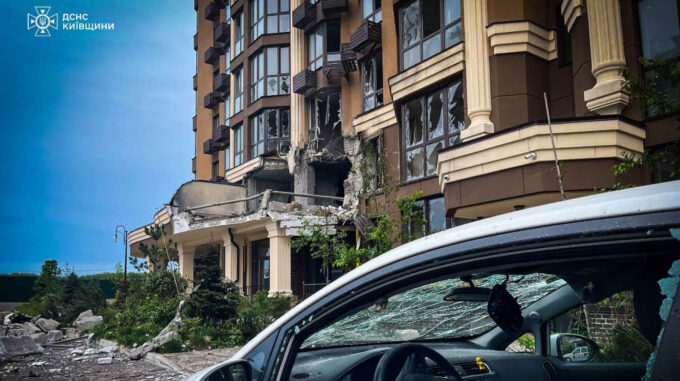Over 27,000 claims have already been submitted to the International Register of Damages caused by Russian aggression against Ukraine, demonstrating the scale and seriousness of war’s consequences for Ukrainian society and infrastructure

This information has become known from official sources, citing the German publication DW, as well as Ukrainian media, in particular "European Truth." According to Markiyan Klyuchkovskiy, head of the Register, approximately 27,500 claims have been registered across various categories, with the largest number being claims for the destruction of housing. These claims are the oldest in terms of submission and have the most substantial material character. In an interview, Klyuchkovskiy emphasized that the average amount of damage in this category is about 60–62 thousand euros, indicating significant financial losses suffered by citizens affected by the war. He also noted that the total damage estimates based on the number of claims amount to more than one billion euros. At the same time, authorities highlight that many claims are related to intangible losses—such as loss of life, disappearances without trace, and other consequences that are not easily quantifiable in monetary terms. The Damage Register is a first step toward creating a modern compensation mechanism; however, payouts are not yet underway. Klyuchkovskiy stated that the development and implementation of a relevant mechanism are still ongoing, and it is difficult to specify exact timelines for starting financial payments. He forecasted that this could happen within a period ranging from one to five years, depending on the political and geopolitical situation. Most likely, the mechanism will be established, and funding will begin within the next two to three years. It is planned that by the end of this year, work will be completed on finalizing an appropriate road map, which involves creating and launching the compensation system. The next step will be ratification of this agreement at the international level, expected to occur by the end of 2024, with full implementation possible as early as 2026. This means that affected Ukrainians will be able to receive necessary payments within several years after the final decision is made. It should be recalled that the establishment of the International Damage Register was decided in May 2023 during the Council of Europe summit held in Iceland. Renowned Ukrainian lawyer and public figure Markiyan Klyuchkovskiy was appointed executive director of this register, based in The Hague. This register marked a significant first step toward creating a system of mechanisms for compensation, aimed at helping war-affected Ukrainians obtain fair reparations for destroyed or lost property and other damages. It is noteworthy that 43 countries, as well as the European Union, have already joined the International Register. An important feature is that, previously, in RD4U, claims could be submitted not only regarding damage or destruction of property but also concerning the death of loved ones, disappearance without trace, or other significant losses of a moral and psychological nature. This underscores the serious intention to create an effective instrument for payments and compensation for victims of Russian aggression at the international level. Looking to the future, the creation and implementation of such mechanisms will enable Ukraine and the international community to respond more systematically to various consequences of the war and to support those most affected. However, it is important to remember that realizing these plans requires time and high-level agreements. Nevertheless, ongoing dialogue at the Hague and support from international partners provide grounds for cautious optimism about gradual progress in this direction. Thus, Ukrainians will have the opportunity to receive long-awaited financial support in the future, which will be a significant step toward restoring trust and justice. However, we emphasize that it is still too early to speak about specific dates for the start of payments, with the main priority being maintaining political stability and securing international support for the successful implementation of the international compensation mechanism.

